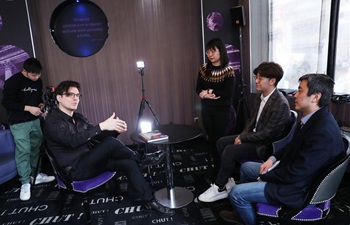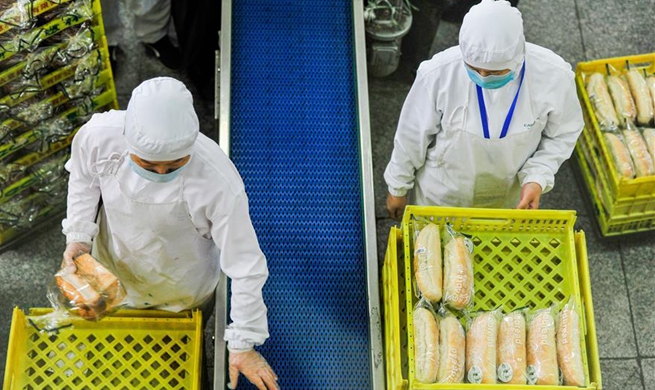CHICAGO, March 6 (Xinhua) -- Being distracted by technology during mealtime may decrease the amount of food a person eats, according to a study posted Friday on the website of the University of Illinois (UI).
The researchers evaluated food consumption by 119 participants on two occasions: one day when they played the game while eating and another day when they ate without distractions.
The game, called Rapid Visual Information Processing, tests users' visual sustained attention and working memory by randomly flashing a series of digits on the computer screen at the rate of one per second, and participants were instructed to hit the space bar on the keyboard whenever they saw three consecutive odd numbers.
The participants, who had fasted for 10 hours before each visit, were told to consume as many as they wanted of 10 miniature quiches while they were either playing the game or eating quietly without distractions for 15 minutes.
The food was weighed and counted before and after it was given to each person.
After a 30-minute rest period, participants completed an exit survey that asked them to recall how many quiches they had been given and the number they had consumed. They also rated how much they enjoyed the meal as well as their feelings of hunger and fullness.
Contrary to prior research, the researchers found that participants ate less when they were distracted by the computer game. Meanwhile, participants' meal memory, referring to their ability to recall how much they had been served and eaten, was less accurate when they were distracted than when they ate quietly without the game.
Participants' consumption on their second visit was affected by which activity they had performed during their initial visit. The people who engaged in distracted eating on their first visit ate significantly less than their counterparts who did not experience the distracted-eating condition until their second visit.
Moreover, when participants who engaged in distracted eating on their first visit were served the quiches on their next visit, they behaved as if they were encountering the food for the first time, as evidenced by a lower rate of consumption similar to that of those who began with the nondistracted meal, according to the study.
"It really seemed to matter whether they were in that distracted-eating group first," said the study's lead author Carli A. Liguori, a visiting faculty member in health and physical activity at the University of Pittsburgh.
"Something about being distracted on their initial visit really seemed to change the amount they consumed during the nondistracted meal. There may be a potent carryover effect between the mechanism of distraction and the novelty of the food served," said Liguori, who had conducted the research while earning a master's degree in food science and human nutrition at the UI at Urbana-Champaign.
The results suggest that there may be a difference between distracted eating and mindless eating. Mindless eating may occur when people eat without intending to do so, while distracted eating may occur when people engage in a secondary activity such as watching TV or answering emails while are deliberately eating.
The findings could have been influenced by such factors as the type of distraction that was used, the type of food served or by using college students as the study population, thus limiting the diversity in participants' age, race, food preferences and motivation to regulate their consumption, the researchers noted.
The findings have been published in the Journal of Nutrition.

















